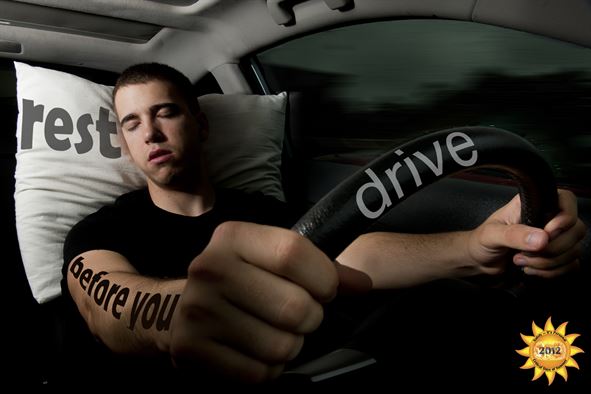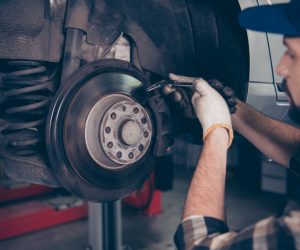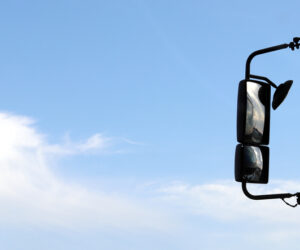Let’s face it, trying to stay awake on long hauls is not easy; regardless of all the tricks you’ve tried.  The white noise of the tires, the same old scenery can eventually put anyone into a trance to where their mind just wants to drift off. All the energy drinks can promise to keep you awake can cause potential health risks and sugar crashes and still leave you feeling drowsy. Read the following for some tried and true tips from truckers for staying awake when driving.
The white noise of the tires, the same old scenery can eventually put anyone into a trance to where their mind just wants to drift off. All the energy drinks can promise to keep you awake can cause potential health risks and sugar crashes and still leave you feeling drowsy. Read the following for some tried and true tips from truckers for staying awake when driving.
Tips to stay awake
- Power nap before heading out on a long drive and at any point after you are in-route when you begin feeling too tired to focus on the road. Studies have shown that even if you sleep for an hour or less, your body feels more energized; this can help increase alertness, reaction time and stamina. However, do not try and fight your fatigue to save time; this can cause you to not only out yourself in harm’s way, but others too.
- Eat a healthy meal. While eating fast food when on the road is convenient; the fat, salt and sugar can make you tired. Instead, try eating energy food. Energy food consists of complex carbohydrates and protein, which can give you long-lasting stamina. Eat 100 percent whole grains, not the ones that “contain whole grains”. Instead, try lean meats, fruits, vegetables. These types of foods can help keep you awake and boost your energy. While eating is good, avoid large portions of food. Eating more small meals throughout the day is better than fewer large meals that make you tired.
- Take vitamins. Certain vitamins such as B’s and C’s, give you energy. Just make sure to take them with a healthy meal, or your body won’t absorb them and you won’t receive their full benefits.
- Move when you become tired. Pull over, get out of the cab stretch your legs and get some fresh air. Sitting for long extended periods can make you tired. You should move around to keep your blood flowing; this also helps keep your energy levels up. Keep the authorities happy at the same time by using a quick truck and trailer inspection as your excuse to stop driving for a short time.
- Crank up the volume on your music. Music affects your mood, which, in return, affects your fatigue levels. If you’re feeling a tired or even down, listen to some lively music that you can sing along with.
- Keep snacking. Make sure your snacks are healthy, though. Remember the M&Ms? Sure, they taste better than a piece of fruit, but you don’t want to ride that sugar rollercoaster when driving the long haul. Snack on something healthy instead, such as a bag of almonds.
- Listen to an interesting audio book. Keeping your mind occupied can help you stay awake. Maybe you like to pump your adrenaline with a scary novel, or maybe suspense is your thing. Just do not let yourself get bored when driving.
- Open your windows and let the oxygen flow. This works particularly well if it’s toasty warm in the cab and cold outside. Like diving into cold water, cold air gives your system a temporary jolt, shocking your sense into alertness. Careful, though, this only works temporarily, so you want to pull over at your next rest stop and take that power-nap.
- Keep yourself hydrated and avoid caffeine. You cannot let yourself dehydrate. Dehydration is an immediate fatigue-causer, however, don’t load up on coffee. Not only will the caffeine in coffee wear off, but caffeine is also a diuretic, which can make you urinate more than the water you should be drinking and increase your dehydration.
- Turn the dashboard lights down. The high contrast lights on the dash compared to the pitch black of the open road at night, can eventually make a driver tired. To avoid this, turn them down just enough to keep the gauges lit and avoid looking at oncoming headlights.
- Keep your emotions in check. If you were recently in an argument or even if you get too excited this can wear you down making you feel fatigued.
- Take deep breaths. Deep breathing can help increase alertness, while raising blood oxygen levels. When this happens, it slows heart rates, lowers blood pressure and improves circulations, helping increase mental performance and boosting energy. Make sure to breathe by inhaling to the abdomen and not the chest.
Tips to optimize your sleep
At the end of your day/night, when it is time to turn in and get some good night’s sleep, it can be hard to turn off your body and brain. This can increase your sleepiness or having sleep deprivation when you get back on the road. Here are a few tips to help you get the rest you deserve.
- Do not take sleeping pills. This includes over-the-counter pills and melatonin.
- Do not go to bed until you are sleepy. If you have trouble sleeping, try going to bed later or getting up earlier.
- Get up at the same time every morning, even after a bad night’s sleep. The next night, you’ll be tired sooner.
- If you wake up in the middle of the night and can’t fall back to sleep, get out of bed and return only when you are sleepy.
- Avoid worrying, watching TV, reading scary books, and doing other things in bed besides sleeping. If you worry, read light fiction or watch TV, do that in a chair that’s not in the bedroom.
- Do not drink or eat anything caffeinated within six hours of bedtime.
- Avoid alcohol. It is relaxing at first but can lead to insomnia when it clears your system.
- Spend time outdoors. People exposed to daylight or bright light therapy sleep better.
According to the National Highway Traffic Safety Administration (NHTSA), drowsiness is the result of 100,000 crashes and 1,800 deaths in the U.S. each year from truck driver fatigue. Normally, the deaths/injured are the truckers themselves. It is important for an owner operator to take responsibility and ensure they are prepared for the long haul by being rested and knowing the warning signs of fatigue. Partner with Non-Forced Dispatch as you will have more control of your sleep patterns and routines when you have control over the hauls you choose to take on.



 Despite COVID-19 cases still rising, the Commercial Vehicle Safety Alliance has announced that this week Brake Safety Week 2020 wi...
Despite COVID-19 cases still rising, the Commercial Vehicle Safety Alliance has announced that this week Brake Safety Week 2020 wi...

